'I wasn't ready to give up': How five riders bounced back from serious setbacks
Cycling goes wrong sometimes, it’s a fact of life. Be it injury, illness or error, the important thing is how you respond and move on. Dr Josephine Perry speaks to riders who’ve bounced back from serious setback
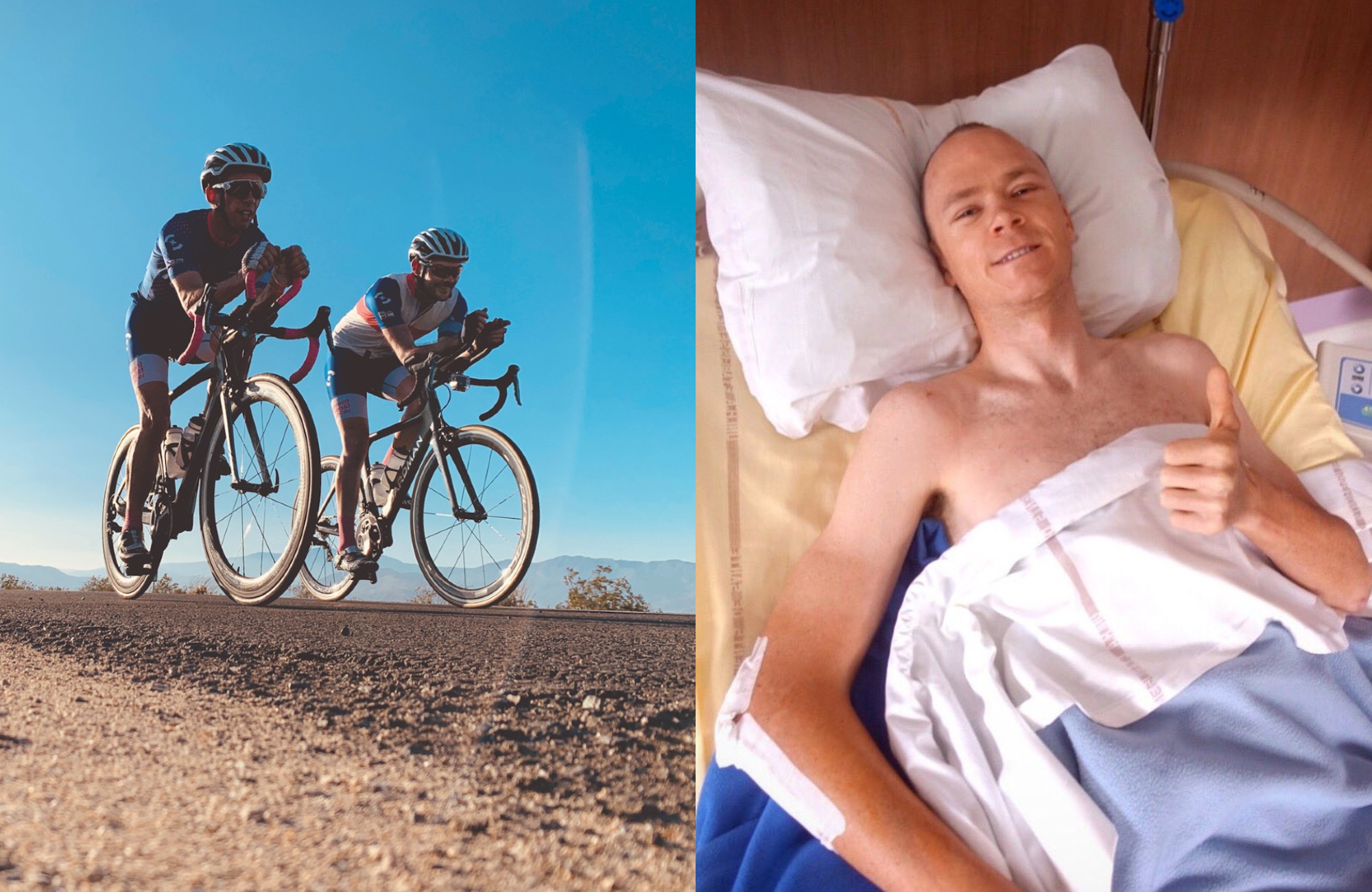
Allen and Harvey's RAAM bid/Chris Froome (Twitter)

Setbacks suck. And setbacks are common. In a recent CW Twitter poll of 644 cyclists, nearly half said they’d had at least one setback necessitating a week or more off the bike in the past year; a quarter had had more than three such forced lay-offs.
As much as we like to take pride in our resilience, the proliferation of pinned collarbone x-rays on Instagram suggests that we don’t always bounce quite as well as we’d like. The passion we feel for our riding means that, when something goes wrong, we tend to be hit hard, both physically and mentally.
If your setback is injury or illness, you are likely to feel physical pain. If it is a missed goal, failed challenge or logistics conspiring against you, then anger and frustration are more common. You’ll also get exasperated at not being able to train — and losing a valuable coping mechanism potentially harms your mental health. Even full recovery doesn’t dissipate those demons, as the fear of it happening again can lurk, leaving us in a dark, unmotivated place.
Researchers have found that, despite this pain, frustration and fear, there are some positives to be grasped: from stress comes growth. The stress caused by setbacks can teach us to be stronger and grittier in future. Personal development, increased optimism and enhanced determination can all result from having come through a setback. With the right approach, we don’t just get back to where we were previously, we can actually be better than ever.
>>> Subscriptions deals for Cycling Weekly magazine
Here, we learn from five riders who set out to achieve big goals but had to confront demons along the way. We wanted to find out how they embraced the stress, grew from it and bounced back stronger. They exemplify that, though every setback is unwelcome, it can, given the right mindset, open up a whole new perspective.
Recovering and re-evaluating: Chris Froome’s big crash
Get The Leadout Newsletter
The latest race content, interviews, features, reviews and expert buying guides, direct to your inbox!
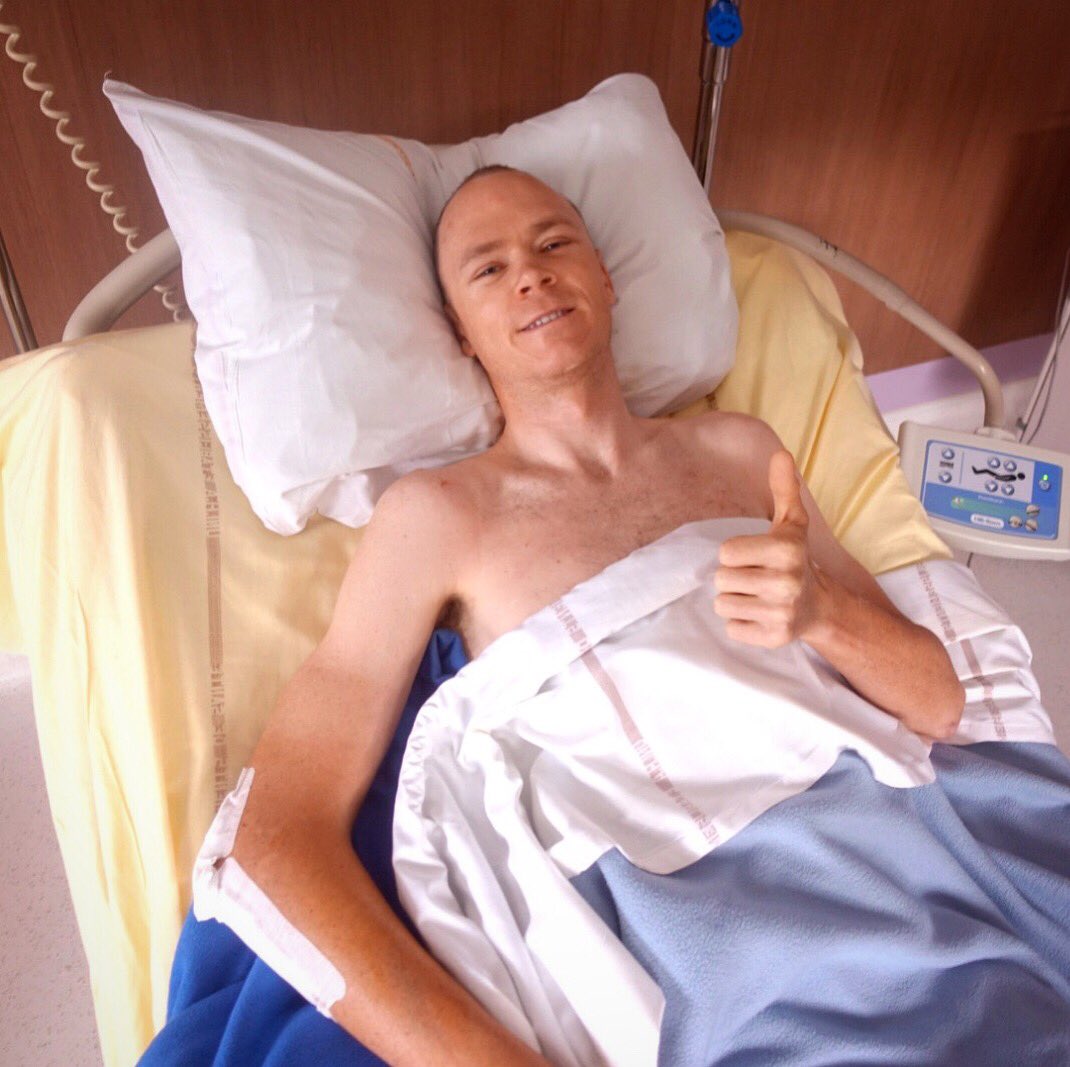
When Chris Froome crashed during a recon of the Dauphiné time trial route in June, he didn’t just forfeit any hope of racing the 2019 Tour, he fractured his neck, ribs and right femur and broke his hip. The 34-year-old has no memory of the crash itself but will always remember the months of effort and recuperation it has necessitated.
For many riders, a setback as significant as this might be a prompt to quit — and Froome wasn’t immune from such thoughts.
"Breaking as many bones as I did left me with the question of whether I should be looking to call it a day on my career,” he tells CW, "but I can confidently say it’s reaffirmed the love for what I do, and that I wasn’t ready to give it up."
The magnitude of the crash has served as a powerful reminder of the risks. "Cycling is a dangerous sport at the best of times, but I think I’ll be a lot more aware of the dangers going forward," says Froome.
It isn’t just safety that Froome has learnt from the setback. He feels it has given him fresh perspective. "Having a big accident like this is never pleasant but I’m beginning to see a bigger picture now, where a forced break from the normal routine of eat-sleep-train-race-repeat wasn’t as bad as it first seemed."
The four-time Tour winner is realising that a setback can provide some valuable time to re-evaluate the body’s specific needs. "I’ve become a lot more aware of exactly which muscles do which jobs, and as a consequence found out that I’ve had other muscle imbalances which if I corrected would make me a better rider."
The perspective that has come from the time off the bike has given Froome a renewed focus. "All in all, I feel even more enthusiastic about racing next season — it’s almost as if the forced break has left me feeling more energised than ever."
Learning hard lessons: Christina Mackenzie’s failed LEJOG attempt
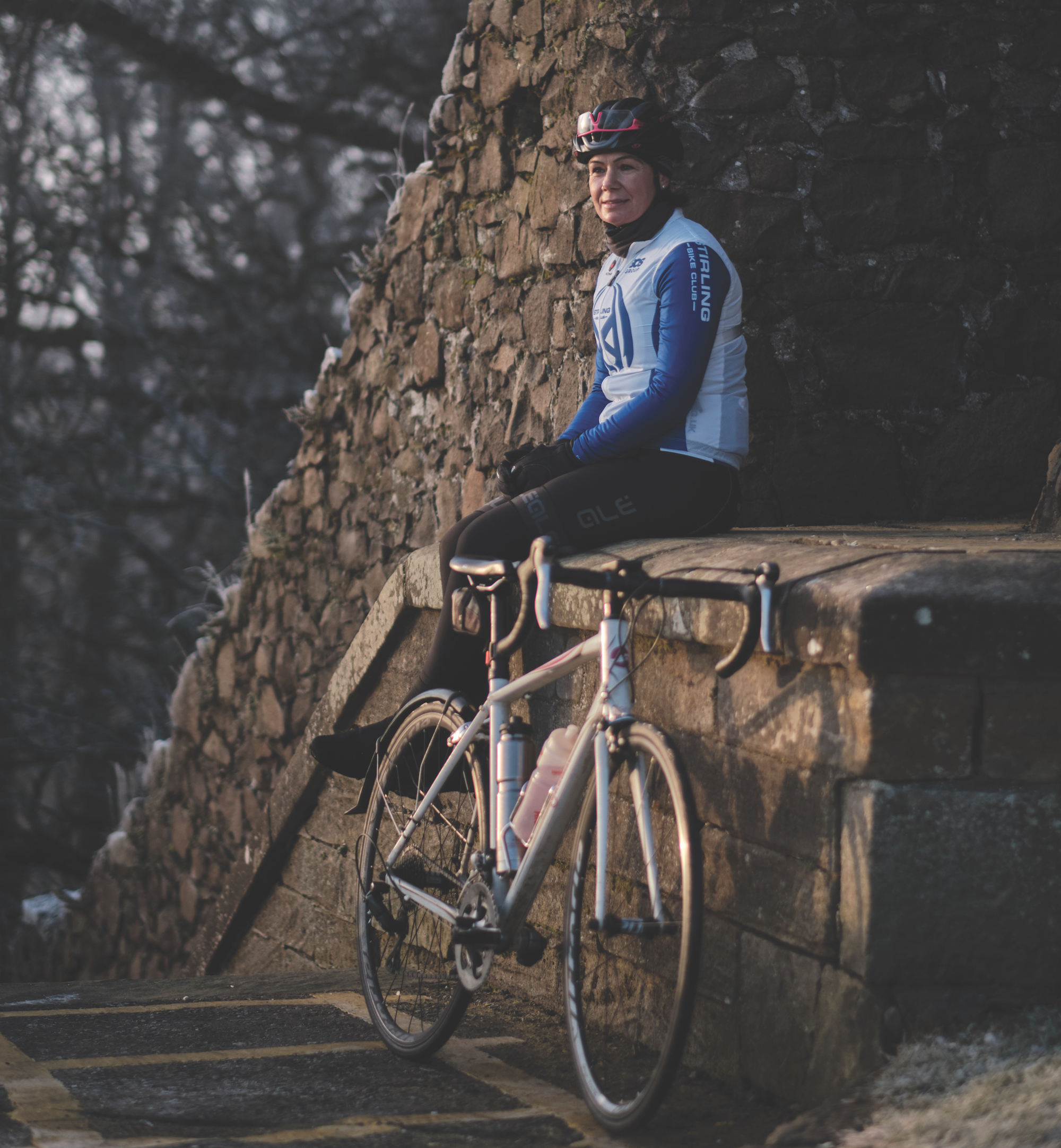
After twice breaking the Scottish veterans’ 24-hour TT record, 42-year-old Christina Mackenzie realised her niche was long-distance racing. After following Mike Broadwith’s Land’s End to John o’ Groats 43hr 25min record last summer, her own LEJOG dream was ignited.
Mackenzie had anticipated some of her biggest challenges. Even with a brilliant team from Stirling Cycling Club behind her, she knew the logistics would be tough — and there was no way of knowing how her body would cope. "The most I had done was 27 hours, but doing double that, not knowing how my body would react to sleep deprivation and nutrition, was scary."
She attempted the record in August. The first 24 hours went to plan, but then it got much harder. "I started getting acid reflux and finding it difficult to keep food down, and that tripped me up."
Supporters along the route helped motivate her but as darkness fell she began to struggle. "You can’t see the hills or the climbs and I was doubting myself, thinking I was losing power. Between sleep deprivation, lack of calories and the cold, I began hallucinating. The trees began to have eyes."
Close to John o’ Groats, she realised the record was out of sight, but carried on, as she didn’t want to let anyone down.
>>> Cycling Weekly is available on your Smart phone, tablet and desktop
It took three weeks for Mackenzie to stop thinking ‘never again’ and begin pondering ‘what if…’ Her next attempt is scheduled for July 2020. How did she bounce back?
"It took a bit of time to acknowledge it, but a few weeks afterwards I was thinking about it and I wanted to do it again but only with the same support team. It was a lot to ask but they all want to go back and do it again."
She learnt a number of lessons that have helped her bounce back.
"I went with proper food, but my stomach is not used to eating normal foods on a bike, so next time it’ll be bars and gels. We also had quite a few stops to find facilities, so next year we will have a camper van, and that will simplify everything. I’ll be better prepared for the cold nights with warmer clothes. This first attempt now feels like a great training run — albeit an extreme one!"
Fail, fail again, fail better: Robbie Britton’s TransPyrenees tech traumas
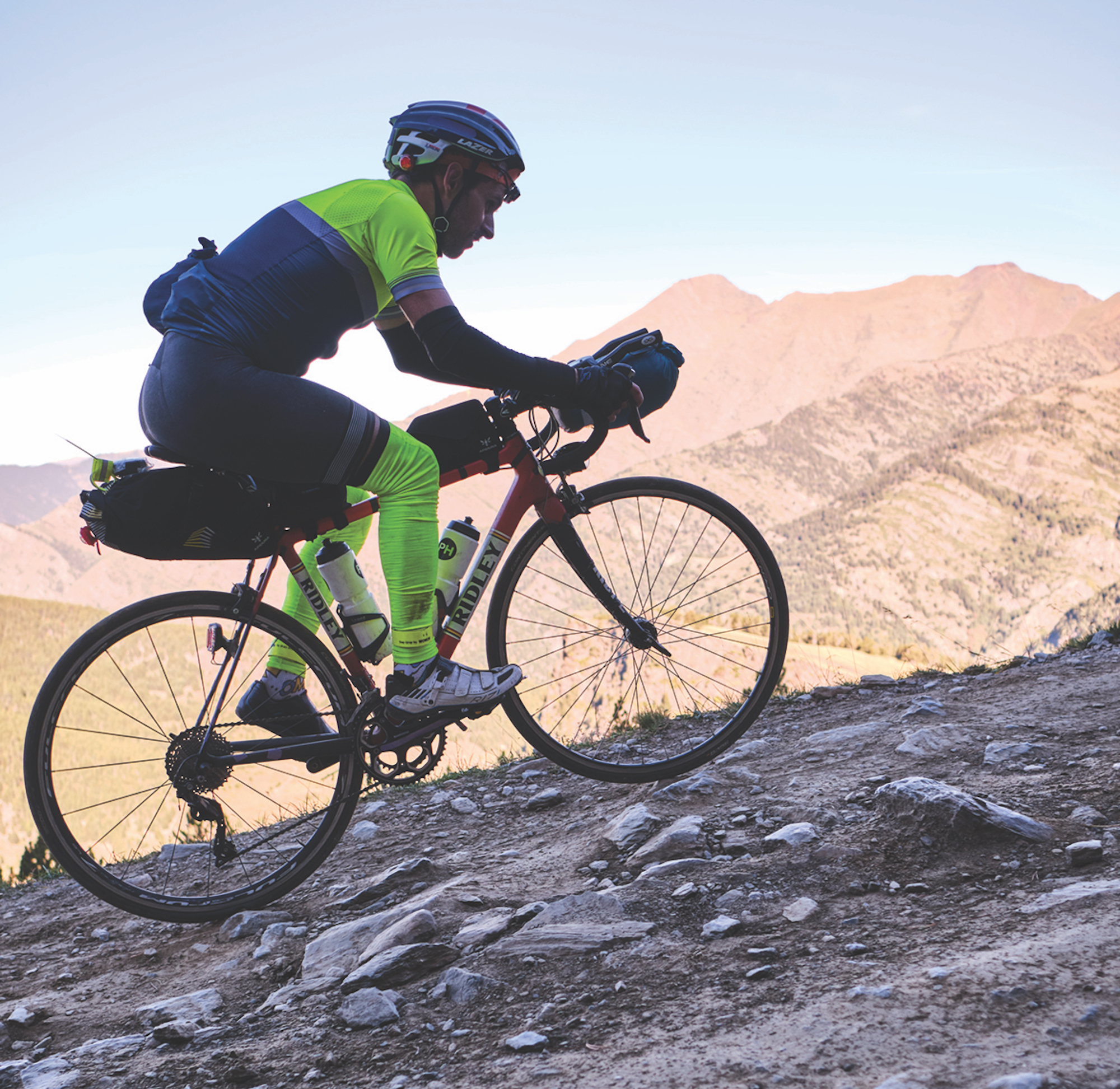
Doing 260km in a day might not sound very impressive to a cyclist — but Robbie Britton can cover that distance on his feet. However, after years spent on the GB 24-hour ultra-running team, an injury this summer side-lined him — so he used his bike to maintain fitness. In fact, the 32-year-old entered the TransPyrenees, a brutal 1,500km self-supported race.
Britton realised he had taken on too much at 40 hours in. "It was my first ever time cycling through the night, and I got really cold. When my GPS and lights started malfunctioning, I didn’t need much pushing to pull the plug."
Britton is not normally the type to give up so easily — and afterwards he needed to find a way to mentally bounce back. So he signed up for the Two Volcano Sprint (2VS), another self-supported race covering 1,000km and including 24,000 metres of elevation.
His goal was simply to finish, but setbacks again made it harder than it should have been. "Another GPS failure, a lot of wrong turns and an additional climb — all my own fault — meant I had to stop for 2.5 hours to get help from a local sports shop to reset and reprogram my Garmin unit, deleting all the map files."
Following a blue line showing him only the general direction, he set off in last place. By skipping sleep, he caught up with all but three of the riders. What helped Britton bounce back was to expect things to go wrong.
"Part of being an ultra-distance athlete is not getting everything right but dealing well when things go wrong."
Sometimes we need to fail in order to fly, according to Britton.
"The failure at TransPyrenees was a huge part of my success at the 2VS. Practically, you figure out a lot of things that do and don’t work, you hone your coping skills and prepare more extensively. Failure is one of the most valuable experiences in my life."
We can all learn from Britton. If, instead of seeing each race as something to win or lose, we see it as a way of learning, we can bounce back at a higher level. "People attach such negative stigma to failure and see it as something to be avoided all costs," he says. "If you’re not flirting with failure, you’re not dreaming big enough."
No crying over spilt drink: James MacDonald’s 24-hour track attempt mishap
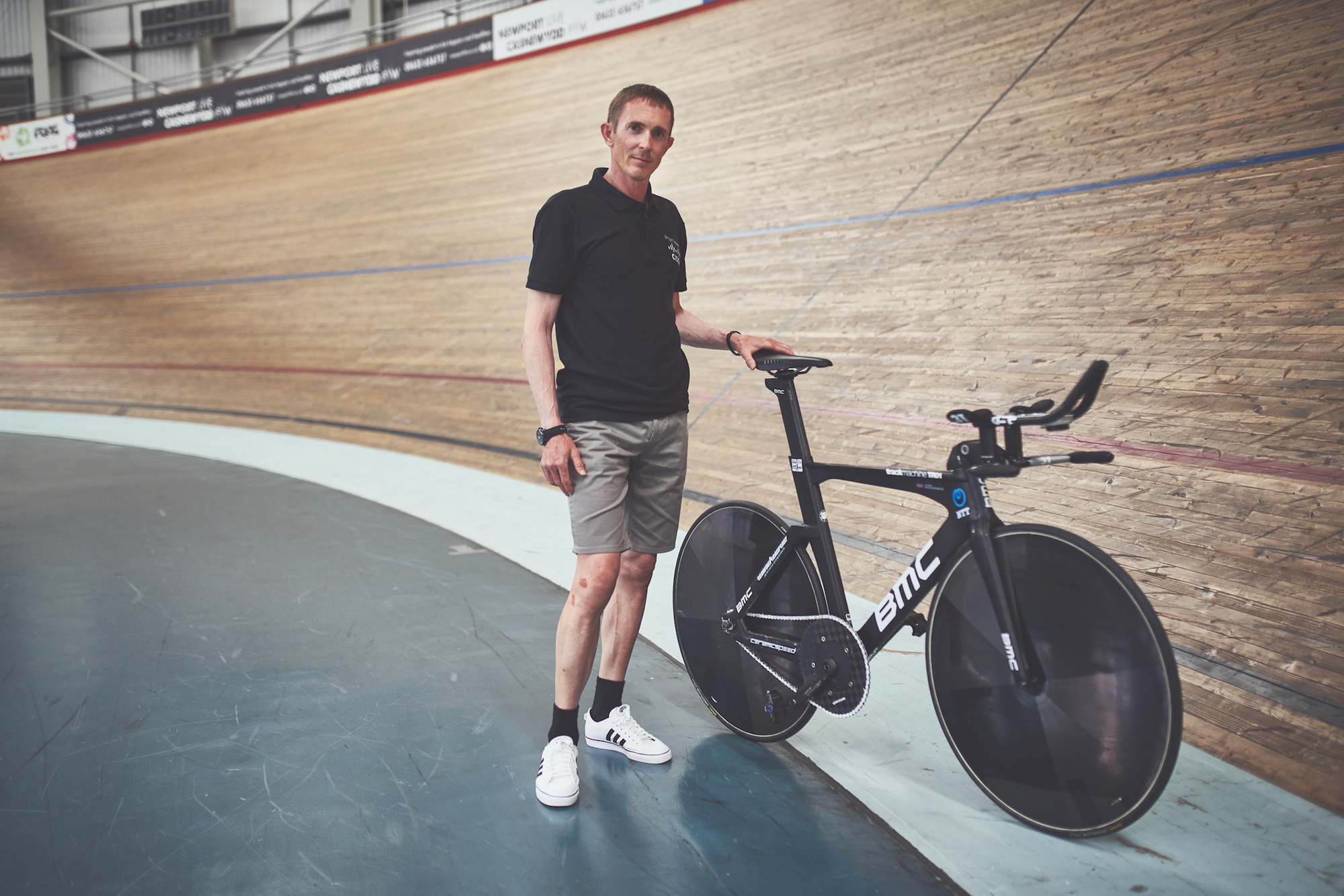
James MacDonald, 49, likes riding long — and he likes riding long on the track. Earlier this year, he attempted a new world record for 24 hours riding round in circles.
With eight hours to go in his attempt, he was slightly off the pace, but with Newport velodrome cooling down for the night, he felt positive and was starting to pick up the speed. Then he crashed.
Having watched the video back, he believes the attempt was derailed by just a few drops of water from a leaky bottle.
"We could see the bottles we were using were dripping on the racing line," says MacDonald, "and when I was out of the saddle stretching a little bit, my rear wheel slipped out of line. I corrected it and then it slipped again and I went over the top."
Though the freak crash was incredibly frustrating, he is going back to try again. "We will regard the 15 hours I was on track as a very elaborate test run. There’s nothing quite like the pressure of spectators and camera crews to make sure it’s as real as possible, and we can use those experiences to help a future attempt."
He is determined to be more focused next time. "There are several logistical changes we will make, but the most significant is around psychology and how the team interact with me during the ride. We are also testing the effect of music on motivation and exploring how to go about mentally split up the 24 hours so it is not tackled in one large chunk; we will treat it like several smaller races, with a reset between."
He will also make equipment changes — crucially, leak-free bottles. And it will be timed to avoid high temperatures. "We won’t do it during summer — the hot conditions elevated my heart rate, which burns more energy."
MacDonald will study what worked and should be retained for the second attempt. "Testing on the track, gym work, strength work, VO2 max work, and long steady sessions averaging 215 watts." Invaluable lessons for the next attempt.
Cutting losses, counting blessings: James Harvey and Tom Allen’s RAAM abandonment
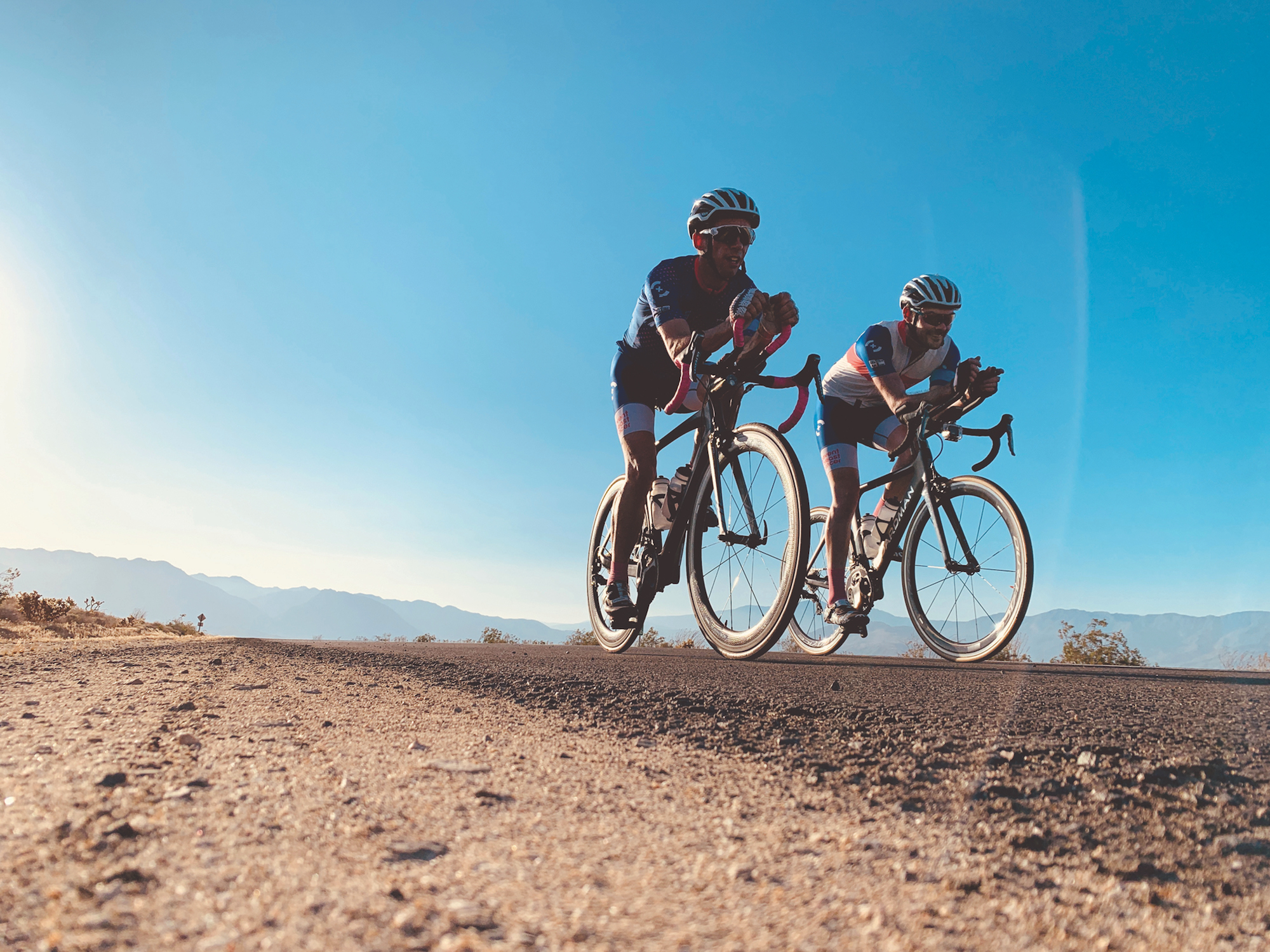
Consultant breast surgeon James Harvey, 45, knew that raising a significant sum of money for Prevent Breast Cancer would require him to step far outside of his comfort zone.
"I googled ‘hardest bike race in the world’," he says, "and Race Across America came up." As reported in CW June 27, Harvey and his friend Tom Allen spent 18 months planning the logistics and training to complete the 3,000-mile challenge as a two-man team.
During the race, which took place in June, they were hit by a number of small setbacks — and two huge ones. First, Allen caught pneumonia. This put him on bed rest just as they hit the hardest parts the race. Harvey had to pull 24-hour stints on the bike: "I was giving myself a talking to every 10-15 seconds uphill. Just pushing on really. I knew from ultra-marathons that if I gave myself food and drink, at some point I would feel better."
It almost worked. "Once I got down from altitude, I felt at my best in the race." So Harvey and Allen bounced back — but on day six they entered Illinois and ran into a massive lightning storm.
"I was in the support car and was woken up by screaming from the front of the car. A lightning bolt had hit the electricity substation right next to where Tom was riding. It exploded in a massive fireball! Tom dived headfirst into back seat of the truck and he was a mess, clearly terrified. In my work in hospitals, I see a lot of trauma but I’ve never seen anyone in that state."
This was not an incident to bounce back from there and then. The logistics meant that waiting for the storm to pass would time them out of the race and, given the close call, they couldn’t justify carrying on.
While Harvey admits to having a ‘niggle’ about it being unfinished business, he regards the RAAM attempt as a success. “We raised a huge amount of money [£105,000] and emptied ourselves completely.” The duo have plans for more adventures but their biggest lesson from previous challenges was that they need to take a decent rest to recover. So before bouncing back too high, they are happy being "normal people" for a while!
This feature originally appeared in the print edition of Cycling Weekly, on sale in newsagents and supermarkets, priced £3.25.
Photo credits: James Robertson, Tom Allen

Thank you for reading 20 articles this month* Join now for unlimited access
Enjoy your first month for just £1 / $1 / €1
*Read 5 free articles per month without a subscription

Join now for unlimited access
Try first month for just £1 / $1 / €1
Dr Josephine Perry is a Chartered Sport and Exercise Psychologist whose purpose is to help people discover the metrics which matter most to them so they are able to accomplish more than they had previously believed possible. She integrates expertise in sport psychology and communications to support athletes, stage performers and business leaders to develop the approaches, mental skills and strategies which will help them achieve their ambitions. Josephine has written five books including Performing Under Pressure, The 10 Pillars of Success and I Can: The Teenage Athlete’s Guide to Mental Fitness. For Cycling Weekly she tends to write about the psychological side of training and racing and how to manage mental health issues which may prevent brilliant performance. At last count she owned eight bikes and so is a passionate advocate of the idea that the ideal number of bikes to own is N+1.
-
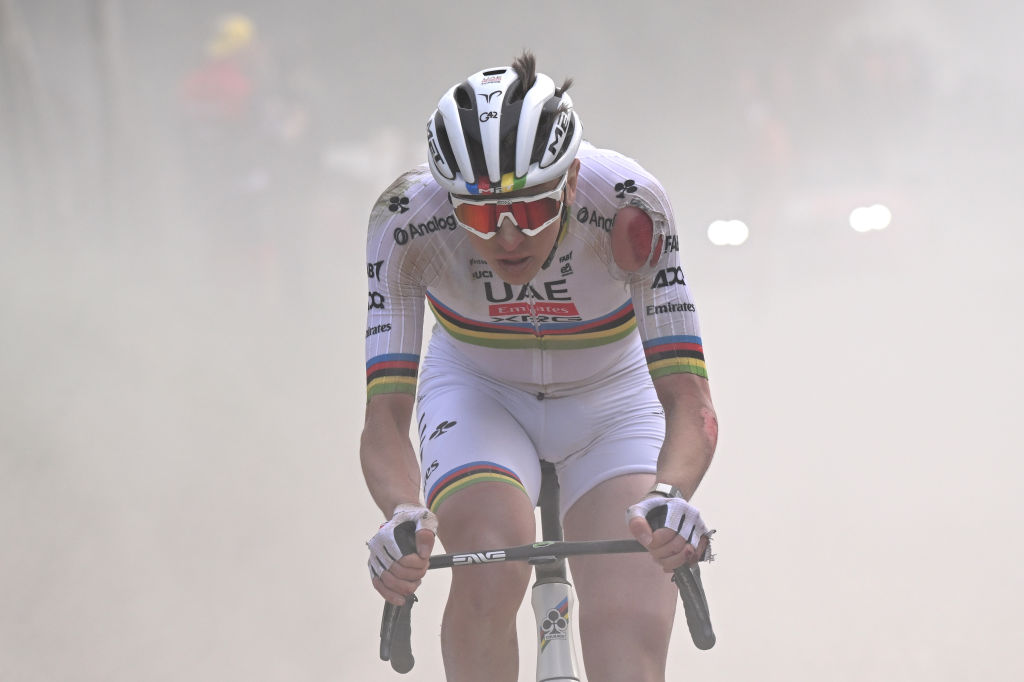 Tadej Pogačar's MET Trenta 3K Carbon is one of the best road cycling helmets on the market – grab it now with 26% off at Tredz
Tadej Pogačar's MET Trenta 3K Carbon is one of the best road cycling helmets on the market – grab it now with 26% off at TredzDeals The MET Trenta features enhanced safety and performance tech including MIPS AIR and now with a whopping £80 reduction, it's a bargain buy
By Paul Brett
-
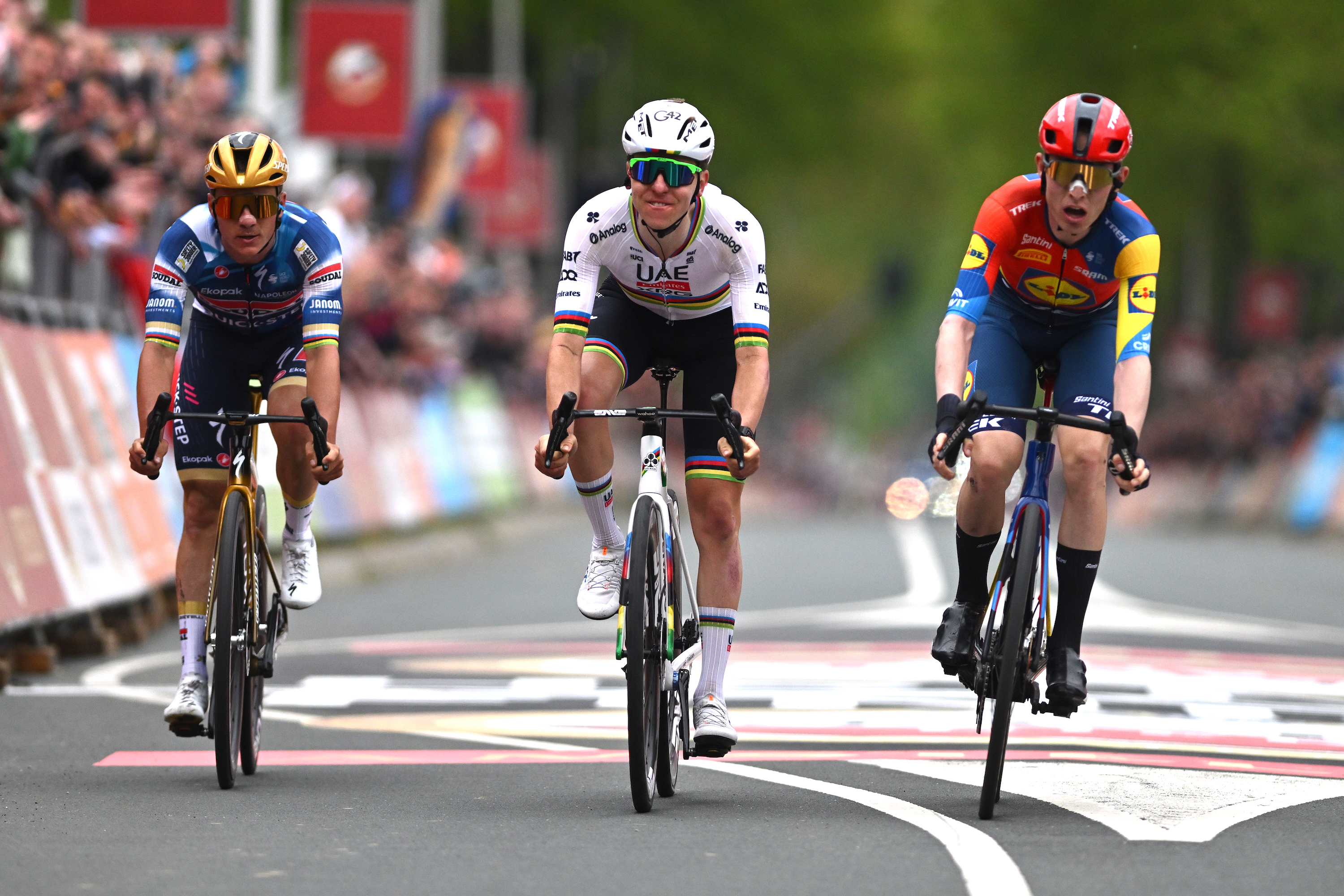 Tadej Pogačar has shown he's fallible - and that's a good thing
Tadej Pogačar has shown he's fallible - and that's a good thingThe Slovenian won’t enjoy losing, but it’s better for brand Pog that he sometimes does
By Adam Becket